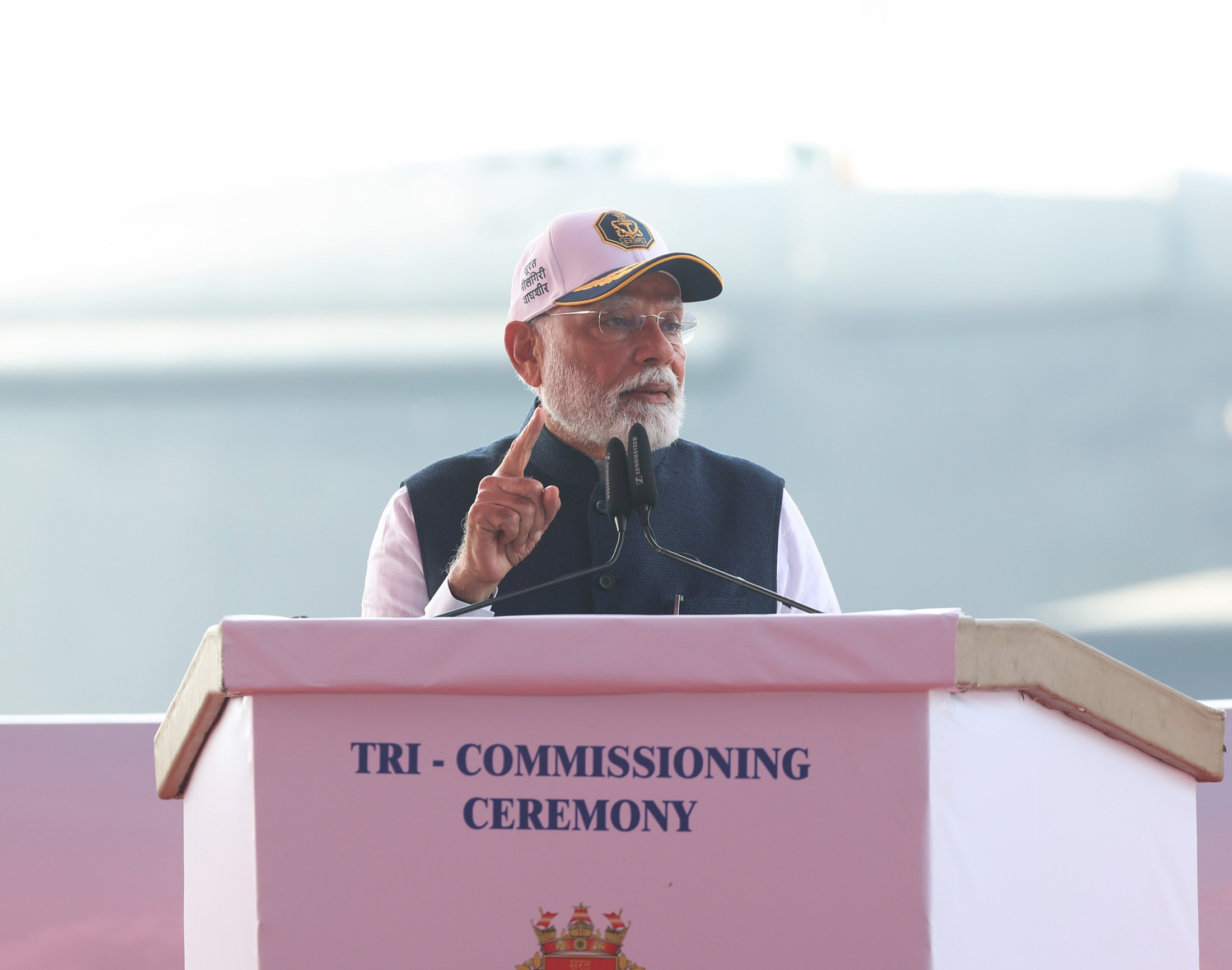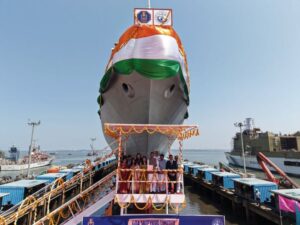
Addressing the gathering, Modi highlighted the significance of the occasion, noting that January 15 is celebrated as Army Day in India. He paid tribute to the brave soldiers who sacrifice their lives for the nation’s security. Reflecting on India’s rich maritime heritage, the Prime Minister stressed that the day was also a step forward in empowering India’s Navy in the 21st century, aligning with the Aatmanirbhar Bharat initiative.
“This is the first time in history that India is commissioning a destroyer, a frigate, and a submarine on the same day,” said Modi, emphasizing that all three combatants are built indigenously. He congratulated the Indian Navy and all stakeholders involved in the construction of the vessels, calling the event a testament to India’s growing defence capabilities.
The commissioning of INS Nilgiri, named after the maritime strength of the Chola dynasty, and INS Surat, which pays tribute to Gujarat’s maritime history, reflects India’s deep-rooted connections to the sea. The INS Vaghsheer submarine, the sixth in the P75 class, further strengthens India’s underwater capabilities.
The Prime Minister also underscored India’s growing role as a global maritime power, committed to securing sea routes, ensuring freedom of navigation, and safeguarding global trade supply lines. He spoke about India’s role in promoting a secure and prosperous Indo-Pacific region and its commitment to the security and growth of all coastal nations, especially through the SAGAR (Security And Growth for All in the Region) initiative.
Modi highlighted India’s leadership in global maritime security, noting that the Indian Navy has saved hundreds of lives and secured national and international cargo, increasing global trust in India’s maritime capabilities. He stressed the importance of maritime security to India’s economic interests, as 95% of the country’s trade is linked to the Indian Ocean Region (IOR).
The Prime Minister also discussed the significant strides India is making in defence self-reliance, citing the Make in India initiative that has led to the construction of naval platforms such as INS Vikrant, nuclear submarines like INS Arihant, and the Tejas fighter jet. He emphasized that the Indian Navy’s fleet is predominantly made up of domestically manufactured vessels, with a focus on bolstering the nation’s defence production capacity.
In his speech, Defence Minister Rajnath Singh called the commissioning of INS Surat, INS Nilgiri, and INS Vaghsheer historic, emphasizing their role in strengthening India’s presence in the Indian Ocean Region. Singh highlighted the importance of the region from both geo-strategic and economic perspectives, particularly its role in global trade and the challenges posed by illicit activities such as drug trafficking and terrorism.
Singh reiterated the government’s focus on defense modernization and self-reliance, with over 75% of the content in the newly commissioned ships being indigenously developed. He also spoke about the reforms underway within the Ministry of Defence, promising continued progress in strengthening India’s military capabilities.
The event was attended by key figures including Maharashtra Governor CP Radhakrishnan, Chief Minister Devendra Fadnavis, Chief of Defence Staff General Anil Chauhan, and other prominent dignitaries from the government and defense sector.
The commissioning of INS Surat, INS Nilgiri, and INS Vaghsheer marks a significant leap forward for India’s Navy, further cementing its role as a major maritime force in the Indo-Pacific region and enhancing the country’s security and economic interests.











